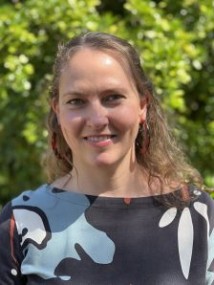Associate Professor Kayli Wild
Principal Research Fellow
Qualifications:
PhD, Charles Darwin University, 2009; Master of Public Health, Menzies School of Health Research, 2005; Bachelor of Science (Anthropology), University of Western Australia, 2000.
Approved level of HDR supervision at Charles Darwin University:
PhD
Location:
Biography:
A/Prof Kayli Wild is Principal Research Fellow with the Centre for Child Development and Education at Menzies. Kayli has a background in medical anthropology and health system improvement, mainly in Timor-Leste and with First Nations communities in the Northern Territory (NT). She specializes in qualitative and mixed methods research. Her main area of research has been at the intersection of culture, politics and health systems. She is particularly interested in participatory approaches and bringing the voices of people with lived-experience to policy issues and social change.
Kayli’s current projects include the evaluation of the NT Maternal Early Childhood Sustained Home-visiting (MECSH) program and the co-design and evaluation of resources for the MECSH program. Kayli is also an Honorary Fellow with La Trobe University where she led a program of research to understand and support effective health sector responses to violence against women in Timor-Leste.
- Evaluation of the Northern Territory Maternal Early Childhood Sustained Home-visiting (MECSH) program
- Co-design and Evaluation of Resources for the MECSH program
- Health system responses to family violence in Timor-Leste (in collaboration with UNFPA and La Trobe University)
- Wild K, Langford K, de Araujo G (2022). Gender-based Violence and Healthcare in Timor-Leste [Textbook – in English and Tetum]. Melbourne: La Trobe University Press.
- Wild K, Young F, de Araujo G, Fernandes A, Gomes L, Kelly L, Taft A (2022). Healthcare Responses to Gender-Based Violence in Timor-Leste: Women Want Empathy, Information and Safety From an Integrated Support System. Journal of Interpersonal Violence, (Online ahead of print, 18 March 2022).
- Wild K, Kelly L, Roche C (2021). “It’s a coffee with a purpose”: Perspectives on thinking and working politically in the Pacific. Development in Practice, (Online, 17 August 2021).
- Kurji J, Hackett K, Wild K, Lassi Z (2021). The effect of maternity waiting homes on perinatal mortality is inconclusive: a critical appraisal of existing evidence from Sub Saharan Africa. BMC Research Notes, 14:86.
- Wild K, Gomes L, Fernandes A, de Araujo G, McDonald S, Taft A (2020). Security from above and below: A critical ethnography of the health response to violence against women in Timor-Leste. Social Science & Medicine, 260:113191.
- Wild K, Kurji J (2020). Maternity waiting homes in times of crisis: Can current models meet women’s needs? Women and Birth, 34(4):306-308.
- Wild K, Ingham X, Amir L, Thompson S, Fernandes E, Wohlman A (2020). Harmonia - Communities ending gender-based violence. Gender Equality and Social Inclusion (GESI) Analysis. Washington: Health Alliance International.
- Wild K, Gomes L, de Araujo G, Fernandes A, Marcal L, Taft A (2020). Curriculum Development in Timor-Leste: Results from the Pilot of WHO’s Pre-Service Curriculum on Responding to Violence against Women and Children. In S. Farram et al., Understanding Timor-Leste, Volume 1. Timor-Leste Studies Association.
- Wild K, de Araujo G (2019). Change from within: Supporting local leadership and including women’s voices in responses to gender-based violence in Timor-Leste. Development Bulletin, 81:42-44.
- Wild K, Gomes L, Fernandes A, de Araujo G, Madeira I, Matos LC, McDonald S, Taft A (2019). Responding to violence against women: A qualitative study with midwives in Timor-Leste. Women and Birth, 32(4):e459-e466.

